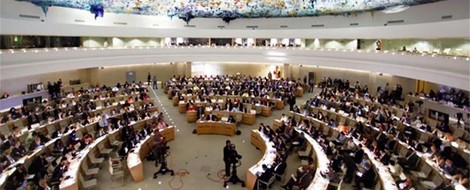Your podcast discovery platform
Curious minds select the most fascinating podcasts from around the world. Discover hand-piqd audio recommendations on your favorite topics.

piqer for: Globalization and politics Global finds
Luis BARRUETO is a journalist from Guatemala. Studied business and finance journalism at Aarhus University in Denmark and City University London.
UNHRC Ya Later: America's Exit From The UN Human Rights Council
The departure of the United States (US) from the United Nations' Human Rights Council (UNHRC) is just the latest episode in which the Trump administration chooses to pack up and leave rather than make any attempt to reform an agreement or international organization from within. Vox's podcast gives context to those not really following international high politics around the clock.
“For too long the human rights council has been a protector of human rights abusers and a cesspool of political bias," US ambassador to the UN Nikki Haley said as she announced the withdrawal. She argued the US spent a year in pursuit of reforms while the council’s flaws became only more evident.
But "one of the biggest and least understood benefits of the UNHRC is that it is a remarkably good mechanism for confronting lower priority human rights violations that otherwise escape the attention of the international community," as Steven Feldstein writes in WPR (Paywall, access with email).
Some of the Trump administration's criticisms are well warranted, such as its disagreement with allowing states accused of committing gross human rights violations to serve in the country. But contrary to his predecessor, Barack Obama, who made larger gains by having the patience to work within the system, Trump seems to believe he can make more progress by blowing all sort of agreements up.
Quitting the UNHRC won’t make it disappear, so the more immediate results from the US' departure is to strengthen China's hand at the international stage, which may well result in pushing an authoritarian agenda, and the even further diminishing of US credibility and influence.
